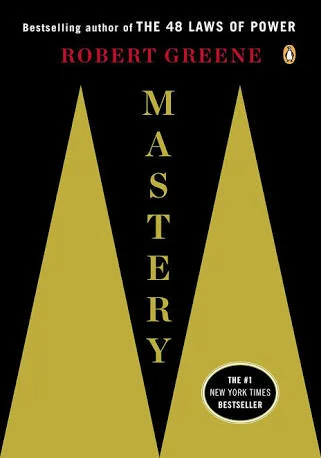
BLOG
What I am reading right now
I am currently reading one of HBR’s “Must Reads” on Emotional Intelligence.
HBR is great at condensing decades of academic research into digestible articles that can be understood by the common man or woman.
This my first research into Emotional Intelligence.
I thought I understood the topic. However it is much bigger than I previously thought.
Emotional Intelligence is critical for any startup founder to achieve success. Sales success is critical on having Emotional Intelligence.
Here are some of the gems I have uncovered so far:
- Long term business success is dependant on an organisational culture of emotional intelligence.
- Emotional intelligence is carried through an organisation like electricity.
- The primary task of a leader is emotional leadership.
- The leader needs to manage his or her inner life...this is not very easy!
- What you need to know about CEO disease.
- Emotional Intelligence is not about putting on a game face every day.
- Why moods are not discussed in the workplace.
I challenge you to read more about this topic. Especially if you think you know all about it!
Old friends
It always pays to maintain your relationships with old friends, bosses and colleagues.
As a founder you need their help.
They want to help you and your startup. Make an effort to catch up for coffee with them every now and then.
Over time some of these contacts will get promoted to executive management. They can be a great help to you as a future customer or introducer.
As an extra bonus it’s always good to have friends!
Know your limits
It is hard to drag yourself away from the computer when deals are happening!
Be aware that your cognitive abilities decline when you don’t take a break.
Sales people are often criticised for not paying attention to detail.
When fatigue causes errors occur at the quoting and contracting stages they are usually expensive to fix!
A friend of mine who managed a telco division was new to the job and was putting in many late nights.
One of his BDMs requested he sign off on a quote that (in hindsight) required more oversight. Unfortunately that single error cost the telco division $1M. My friend recovered from that mistake but not without a lot of worry and stress.
Don’t fall into the same trap!
Being in the customer’s eye
Early in my career it got on my manager’s nerves that I spent too much time in the office. He expected me to be out all the time, meeting with customers etc.
Now I had good, regular meetings but he wanted me to double or triple that.
I disagreed. I felt I was being more than productive with the level of weekly meetings and the office time was spent on proposals and calling customers.
In hindsight my manager was right and I was wrong.
Getting seen by your customer, even in passing helps you to stay top of mind. You don’t want to be booking meetings with with no real agendas, but you can use your time to connect with other stakeholders in the organisation.
In the words of Robert Cialdini’s book, Pre-Suasion, what becomes focal becomes causal.
Or put simply... the more your customers see you the more they are likely to buy from you.
The balance between Realism and Positive Creativity
As a start up founder you need both Realism (getting to the cold truth of your sales prospects) and Positive Creativity (imagining a bright future for your product).
Both perspectives are important. Realism keeps you grounded and forces you to compensate for deals that will fall through. Positive Creativity leverages your most powerful tool, your imagination to build a great vision of the future!
Too much realism you get depressed. Nobody buys from someone who is negative.
Too much Positive Creativity and you are just dreaming!
Although these perspectives are contradictory, if you harness their power it will help you build a successful sales engine for your startup.
Having Darth Vader as your Sales Manager
This YouTube video shows Darth Vader displaying his management style in getting the second Death Star “back on track”:
Even as a child I felt the impressiveness of this scene. Vader’s “framing” of the situation quickly overcame the frame of his subordinate.
Sometimes it helps to have a Darth Vader type keep you more accountable:
- what is the pipeline looking like?
- are those opportunities real?
- what are you doing to close the sales now?
Find someone that can help you “dispense with the pleasantries” and get back to business!
It only needs to be a brief conversation once a week. The effect can be powerful!
No matter your background, you can master sales!
We all tend to look at extremely successful individuals as “gifted” with “natural-born talent”.
Until I read Robert Greene’s book, Mastery I thought the same way also.
I used to think that Einstein or Mozart were especially gifted. The following film excerpt of Mozart re-enforces these perceptions.
Viewing others as naturals is just a cognitive bias on our part. It is in the master’s interest to give the impression their talent is natural and takes no effort on their part. This keeps their would-be threats at bay.
The same goes for sales. No matter your background if you are prepared to work hard, learn and develop your EQ, you should also have a very good chance of sales success!
If you don’t believe me, then read Robert Greene’s book, Mastery.
Who should you seek to influence the most?
During a presentation to a group of startups last week, I asked, “who would you like to influence the most?”
The answers were the same as what I used to think:
- everyone I sell to
- my boss
- my employees
- the world!
Now having read “Pre-suasion” and “Influence” by Robert Cialdini, the person I would most like to influence is myself.
The effect of influencing yourself can be extraordinary. It can affect your personal performance, internal confidence and response to failure.
In the long run, being a greater influence to yourself will have a much greater impact on everyone around you!
Become a better influence by asking for advice
Over the past few months I have been a big fan of Robert Cialdini’s 2016 Book, Pre-Suasion.
Research has uncovered the fascinating fact that if we ask someone for advice, they are going to be more supportive of the product we are selling.
Despite people’s fears that asking for advise might cause people’s perception that we don’t know much, the evidence shows the opposite.
A great way to use this tactic is asking for advice on how to navigate an organisation’s structure for a proposed product. You are going to get greater support compared to not asking for advice!
Early stage startups don't need a “fancy” CRM
I get really frustrated when startups buy the coolest CRM and spending the next 5 hours tweaking it’s functionality until it’s PERFECT.
Don’t waste your money - and especially TIME.
Too many startups do not realise how short the startup life-cycle really is.
Time is not on your side.
Use every spare moment calling potential customers, setting up meetings, learning how to increase your sales success.
Instead of a CRM, just get started with a simple spreadsheet (Microsoft or Google Drive). With some basic tables, you can easily manage up to 50 opportunities on a single page.
(Sure when your sales machine is SOLID, you are bringing in over $50k every month, hiring new sales people - fill your boots and get a great CRM)
If this is not you yet, give yourself 10 mins to setup a spreadsheet you are comfortable with, and then get back on the phone and email and selling!
If you really need to have a CRM, then pick a free one that only takes a few minutes to setup.
Try this example spreadsheet as a starting point. Now it should take you 2 minutes!











